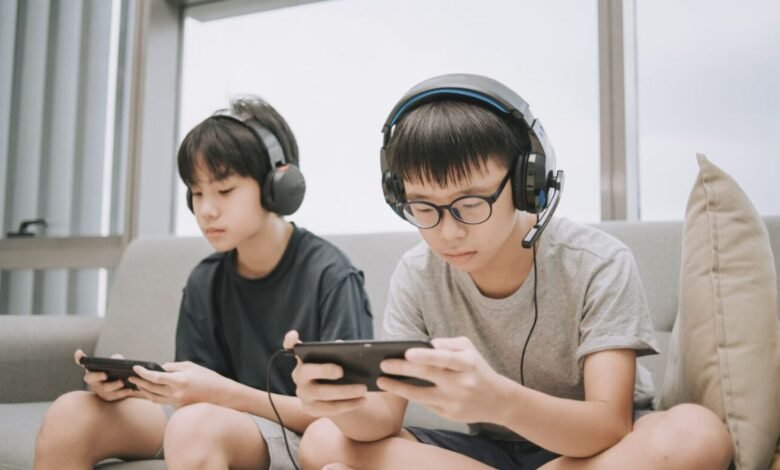How to Balance Gaming and Life

In today’s fast-paced world, the realm of gaming has become an integral part of modern culture. For many, it serves as a source of entertainment, stress relief, and even a way to connect with friends. With the rise of online multiplayer games and immersive gaming experiences, it is easy to get lost in these virtual worlds. However, like any other hobby or activity, gaming can quickly become a time-consuming habit that affects other areas of life. From personal responsibilities to physical and mental well-being, an imbalance between gaming and real life can cause significant disruptions.
Learning how to balance gaming with the various demands of daily life is essential for maintaining health, productivity, and relationships. Striking the right balance doesn’t mean abandoning gaming altogether, but instead finding a healthy way to incorporate it into your life. This article will explore effective strategies to help you manage your gaming time, set boundaries, and foster a fulfilling lifestyle that includes both gaming and life responsibilities.
Understanding the Impact of Gaming on Life
Before diving into solutions, it’s important to understand why balancing gaming with life is essential. For many, gaming can be an escape from the stresses of the real world. Whether it’s through role-playing games, competitive matches, or social gaming, these activities often provide a sense of achievement, relaxation, and social connection. However, the immersive nature of gaming can also lead to addiction, poor time management, and a lack of attention to other areas of life.
Excessive gaming can negatively affect physical health. Sedentary behavior, poor posture, and inadequate sleep are common issues faced by avid gamers. Moreover, spending too much time on gaming can interfere with academic or career goals, reduce social interactions with family and friends, and leave little time for physical activities or self-care. Understanding these consequences is the first step toward finding the right balance between gaming and life.
Set Clear Goals and Priorities
One of the most effective ways to balance gaming and life is by setting clear goals and priorities. This means defining what’s most important in your life and creating a roadmap that allows you to focus on those aspects while still enjoying gaming.
Identify Your Life Priorities
Start by listing out your main priorities in life. These may include:
- Work or education
- Family and relationships
- Physical health and fitness
- Personal hobbies or self-improvement
Once you have a clear understanding of your priorities, you can set realistic goals for each area. For example, if your primary goal is to advance in your career, you may decide to allocate more time to work-related tasks while reducing gaming hours.
Set Gaming Goals
It’s also important to establish goals for your gaming activities. This could involve setting specific times for gaming sessions, aiming for personal achievements within the games, or limiting gaming to certain days of the week. By treating gaming like a structured activity, you can prevent it from encroaching on other parts of your life.
Time Management: Allocating Time Wisely
Time management is one of the most critical components of balancing gaming with other life responsibilities. When gaming is prioritized without consideration for time, it can quickly lead to neglecting other important activities. To avoid this, learning how to manage your time effectively is crucial.
Create a Balanced Schedule
Creating a daily or weekly schedule that includes time for work, gaming, physical exercise, socializing, and personal activities can help you achieve balance. For example, set aside specific hours for gaming, ensuring that it does not interfere with other priorities like work, school, or family time. Use tools like calendars, reminders, or digital apps to help you keep track of your schedule.
Limit Gaming Sessions
Another way to balance gaming and life is by limiting the length of your gaming sessions. Long, continuous gaming marathons can be tempting, but they can result in physical discomfort and mental fatigue. Set a timer or use apps that track the time spent on gaming. You can also take breaks in between sessions to ensure that you are not sitting for prolonged periods.
Prioritize Tasks Before Gaming
Before you dive into your gaming session, make sure that you’ve completed important tasks first. Whether it’s work, school assignments, house chores, or exercising, getting through your to-do list will give you a sense of accomplishment and reduce the guilt that often accompanies unbalanced gaming habits. Once the essential tasks are done, you can fully enjoy gaming without feeling stressed or anxious about unfinished responsibilities.
Set Boundaries: Protecting Your Personal Time
Setting clear boundaries is vital for maintaining a healthy gaming-lifestyle balance. Without boundaries, gaming can easily take over your life and prevent you from accomplishing other essential tasks. Here are some ways to set effective boundaries for gaming:
Create a Dedicated Gaming Space
Establishing a dedicated space for gaming can help differentiate between leisure time and productivity time. If possible, create a specific gaming area that’s separate from your workspace, bedroom, or study area. This will make it easier to focus on the task at hand without the temptation to start gaming during work or study hours.
Limit Gaming to Specific Times
Designate specific days or time slots during the week for gaming. For example, you could allow yourself to play games for an hour or two in the evening after you’ve completed work or school responsibilities. By setting clear time limits, you can prevent gaming from becoming an all-consuming habit and ensure that it doesn’t interfere with other aspects of your life.
Turn Off Notifications
Gaming can often be distracting, especially when combined with notifications from social media or other apps. To ensure that gaming doesn’t bleed into other areas of your life, turn off non-essential notifications while gaming. This allows you to immerse yourself in the game without being pulled away by external distractions.
Stay Physically Active
One of the key components of balancing gaming and life is maintaining physical health. Gaming often involves long periods of sitting and minimal physical movement. This sedentary lifestyle can contribute to a variety of health issues, including weight gain, poor posture, and cardiovascular problems.
Exercise Regularly
To counteract the negative effects of sitting for extended periods, make it a point to include physical activity in your daily routine. You don’t need to become a gym enthusiast overnight—start small with activities like stretching, walking, or short home workouts. Set a goal to exercise for at least 30 minutes a day, five days a week. This will help you stay fit, increase your energy levels, and improve your overall well-being.
Take Breaks During Gaming
Incorporating regular breaks during gaming sessions is important for both physical and mental health. Every 30 to 60 minutes, take a short break to stand up, stretch, hydrate, or walk around. This will help reduce the risk of eye strain, back pain, and mental fatigue that can come from long gaming sessions.
Foster Social Connections Outside of Gaming
Gaming is often a social activity, especially with online multiplayer games. However, it’s essential to nurture relationships outside of the gaming world. Spending quality time with family and friends can provide emotional support, strengthen bonds, and promote mental well-being.
Schedule Time for Friends and Family
Make time for socializing and connecting with loved ones outside of the gaming environment. Plan regular hangouts, dinners, or activities with friends and family to maintain strong relationships. Setting aside time for these connections helps ensure that gaming doesn’t take over your social life.
Engage in Non-Gaming Activities
Explore hobbies or activities that don’t involve gaming. Whether it’s reading, painting, cooking, or volunteering, engaging in non-gaming activities can offer a refreshing break from the screen and contribute to personal growth. Balancing gaming with other hobbies helps create a well-rounded lifestyle.
Know When to Seek Help
For some individuals, balancing gaming with life responsibilities can become a significant challenge. If you notice that gaming is severely impacting your personal life, work, or relationships, it may be time to seek professional help. Gaming addiction can be a serious issue, and seeking guidance from a therapist or counselor can provide support in overcoming it.
Set Realistic Expectations
Finally, it’s important to set realistic expectations for yourself. Balancing gaming and life doesn’t mean you have to be perfect in every area of life. Some days, you may spend more time gaming, while on others, you may focus more on personal responsibilities. Allow yourself flexibility and be kind to yourself as you work to achieve balance.
Conclusion
Balancing gaming and life is about creating harmony between leisure and responsibility. By setting clear goals, managing time effectively, setting boundaries, and making physical health a priority, you can enjoy the benefits of gaming without sacrificing important areas of your life. Remember, moderation is key. With careful planning and self-awareness, it is entirely possible to enjoy gaming while maintaining a healthy, fulfilling lifestyle.



